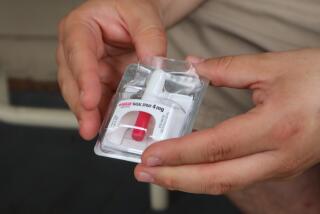Hospitals in California would have to report superbug infections under planned legislation

- Share via
State Sen. Jerry Hill said Monday that he plans to introduce a bill to require California hospitals to report when patients are infected with lethal superbugs.
Even though the drug-resistant bacteria are probably killing thousands of Californians each year, Hill said, the state does little to track the infections.
The Times reported this month that state officials estimate that 7,500 to 9,000 Californians die each year from infections acquired inside hospitals. That number is based on a national estimate that 75,000 Americans die annually from hospital-acquired infections — a projection that some experts say is too low.
“We have a crisis on our hands,” said Hill (D-San Mateo). “The growth of antibiotic resistance threatens our very way of life.”
Last week, Los Angeles County officials said they plan to require hospitals to begin reporting when patients are infected with a superbug known as CRE, or carbapenem-resistant enterobacteriaceae. The bacteria kills half of its victims if it infects a patient’s blood.
Hill’s bill, which he plans to introduce in December, would require hospitals across the state to report CRE and as many as 22 other drug-resistant infections that federal health officials have defined as “urgent, serious or concerning.”
The state currently requires hospitals to report a handful of different types of hospital-acquired infections. Unlike two dozen other states, California has not required hospitals to report when patients are sickened with CRE.
The Times reported one 2014 case in which Shawn Chen of Manhattan Beach called the Los Angeles County public health department to report that her mother had been infected with CRE at Torrance Memorial Medical Center, but was told that it was not a reportable disease. Her mother, Sharley McMullen, soon died from the infection.
Hill said that without tracking the infections, health officials cannot measure the problem and try to stop the deaths.
“This is about saving lives,” he said.
Follow @melodypetersen on Twitter
More to Read
Inside the business of entertainment
The Wide Shot brings you news, analysis and insights on everything from streaming wars to production — and what it all means for the future.
You may occasionally receive promotional content from the Los Angeles Times.











